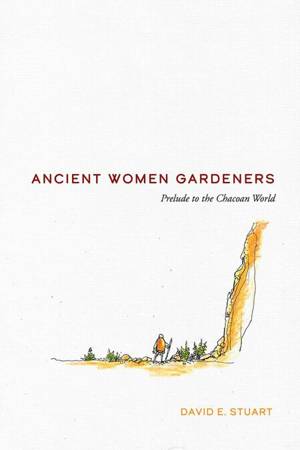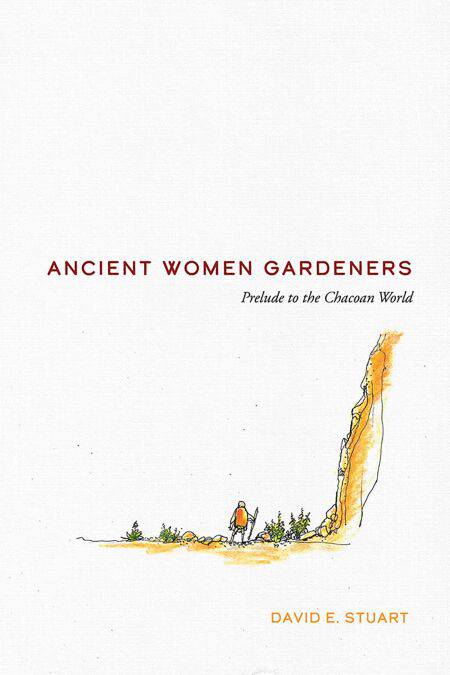
- Retrait gratuit dans votre magasin Club
- 7.000.000 titres dans notre catalogue
- Payer en toute sécurité
- Toujours un magasin près de chez vous
- Retrait gratuit dans votre magasin Club
- 7.000.0000 titres dans notre catalogue
- Payer en toute sécurité
- Toujours un magasin près de chez vous
Description
A wholly new perspective on the importance of gardens and agriculture on the Chacoan world, establishing the female dominated gardeners as the basis of Chacoan culture. Author David E. Stuart digs beyond the standard archaeological examination of structures, tools, and rituals of the age to provide a more rounded view of this remarkable culture.
An original look at the gardens and gardeners of the Chacoan World, internationally acclaimed ethno-anthropologist David E. Stuart’s Ancient Women Gardeners: Prelude to the Chacoan World explores the ecological, demographic, and human dynamics that led to Chaco’s rise and fall from its early beginnings in the 500s AD to its decline during the 1100s AD. The Chacoan system represents North America’s earliest form of an emergent urban ecology. From its outset, Chacoan farm nodes consisted of widely scattered clusters of gardens connected by roads, way stations, and district granaries. Chaco’s women gardeners fueled powerful growth that was eventually aborted as unforeseen dynamics barred the path to long-term sustainability. Stuart considers the intersection of population growth, agricultural yields, crop and soil possibilities, the caloric cost of labor, the corrosive role of pellagra, iron-deficiency anemia, the power of dietary protein in population dynamics, and the limitations imposed by early growth in the San Juan Basin—a land of poor soils, unpredictable rainfall, and rapidly declining wild vegetal foods and game. Focusing on the Chacoan landscape, farming techniques, and a world in which clusters of individual gardening families played a key role in creating an incipient urbanism in the Southwest, Stuart argues that without these accomplished gardening families and their agricultural innovations, there never would have been a “Chaco Phenomenon.”
An original look at the gardens and gardeners of the Chacoan World, internationally acclaimed ethno-anthropologist David E. Stuart’s Ancient Women Gardeners: Prelude to the Chacoan World explores the ecological, demographic, and human dynamics that led to Chaco’s rise and fall from its early beginnings in the 500s AD to its decline during the 1100s AD. The Chacoan system represents North America’s earliest form of an emergent urban ecology. From its outset, Chacoan farm nodes consisted of widely scattered clusters of gardens connected by roads, way stations, and district granaries. Chaco’s women gardeners fueled powerful growth that was eventually aborted as unforeseen dynamics barred the path to long-term sustainability. Stuart considers the intersection of population growth, agricultural yields, crop and soil possibilities, the caloric cost of labor, the corrosive role of pellagra, iron-deficiency anemia, the power of dietary protein in population dynamics, and the limitations imposed by early growth in the San Juan Basin—a land of poor soils, unpredictable rainfall, and rapidly declining wild vegetal foods and game. Focusing on the Chacoan landscape, farming techniques, and a world in which clusters of individual gardening families played a key role in creating an incipient urbanism in the Southwest, Stuart argues that without these accomplished gardening families and their agricultural innovations, there never would have been a “Chaco Phenomenon.”
Spécifications
Parties prenantes
- Auteur(s) :
- Editeur:
Contenu
- Nombre de pages :
- 232
- Langue:
- Anglais
- Collection :
Caractéristiques
- EAN:
- 9780826368317
- Date de parution :
- 20-10-25
- Format:
- Ebook
- Protection digitale:
- Adobe DRM
- Format numérique:
- ePub

Les avis
Nous publions uniquement les avis qui respectent les conditions requises. Consultez nos conditions pour les avis.






